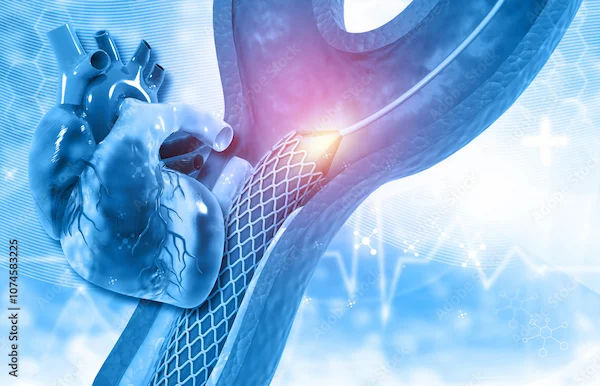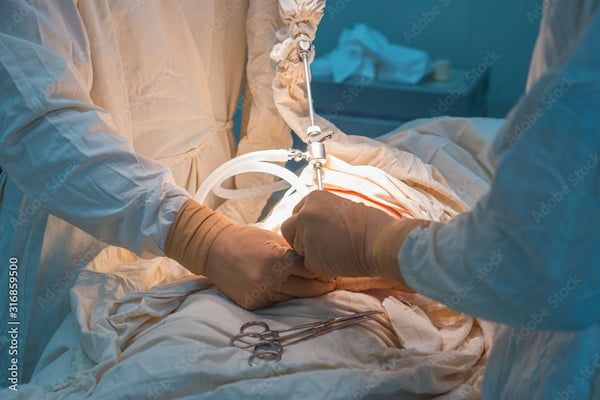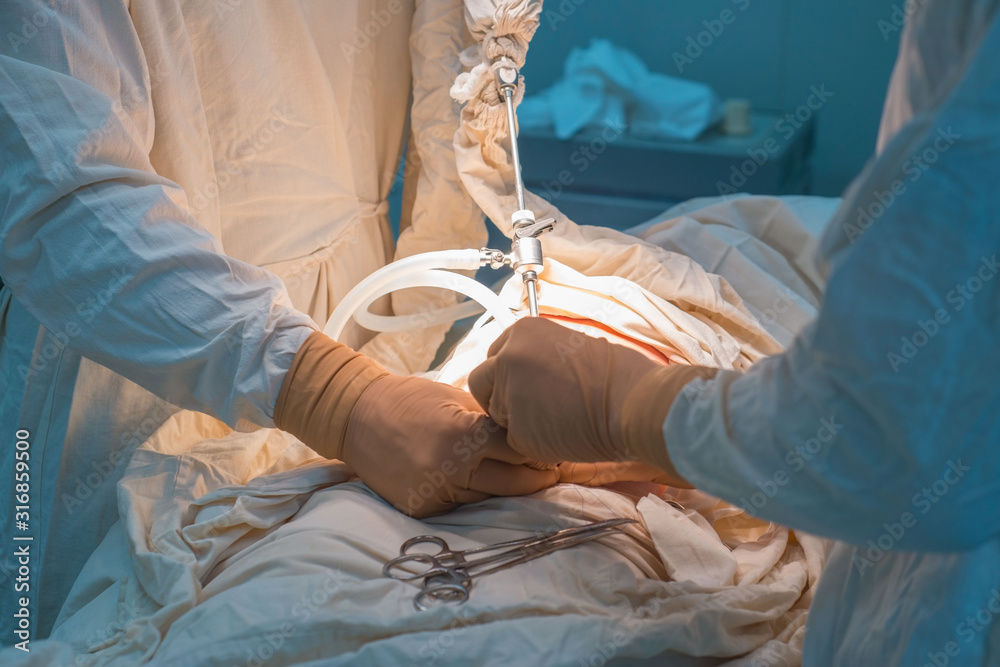Upper Back Pain After Angioplasty
Upper back pain after angioplasty may be common and usually mild, but in some cases, it might indicate a more serious issue. Learn when it’s normal, when to worry, and how to find relief.

Written by Dr.Sonia Bhatt
Last updated on 3rd Jul, 2025

Introduction
If you’ve recently undergone an angioplasty, you might be experiencing upper back pain and wondering if it’s normal. While angioplasty is a common and generally safe procedure to improve blood flow to the heart, some patients report discomfort in their upper back afterward.
In this article, we’ll explore why this happens, when to be concerned, and how to manage the pain effectively.
Why Does Upper Back Pain Occur After Angioplasty?
Upper back pain after angioplasty can happen due to several reasons:
1. Muscle Strain or Positioning During the Procedure
Angioplasty is performed while you lie on a hard table for an extended period, which can strain your back muscles. Sometimes, the position of your arms during the procedure can contribute to stiffness or discomfort afterward.
2. Referred Pain from the Heart
In some cases, pain originating from the heart (such as residual angina or minor inflammation) can radiate to the upper back. This is more common if you had significant blockages before the procedure.
3. Stress and Anxiety
Undergoing a heart procedure can be stressful, leading to muscle tension in the back and shoulders.
4. Post-Surgical Inflammation
The body’s natural healing response may cause mild inflammation, leading to temporary discomfort.
5. Rare but Serious Causes
In very rare cases, upper back pain could indicate complications like aortic dissection or pericarditis (inflammation around the heart).
Consult Top Specialists for Personalised Heart Health Advice
When Should You Be Concerned?
Most upper back pain after angioplasty is temporary and improves within a few days. However, you should seek medical attention immediately if you experience:
Severe, sudden, or worsening pain
Pain accompanied by:
Shortness of breath
Chest tightness or pressure
Dizziness or fainting
Excessive sweating
Nausea or vomiting
These could be signs of a heart-related complication and should not be ignored.
How to Manage Upper Back Pain After Angioplasty
If your pain is mild and not associated with alarming symptoms, try these safe and effective ways to ease discomfort:
1. Gentle Movement & Stretching
Engaging in light movement may help loosen stiff muscles and prevent further strain.
Avoid staying in one position for too long.
Light stretches for the shoulders and upper back can help relieve stiffness.
2. Heat or Cold Therapy
Applying temperature therapy may help reduce soreness and muscle tightness.
A warm compress can relax tense muscles.
If there’s swelling, an ice pack (wrapped in a cloth) may help.
3. Over-the-Counter Pain Relief
Acetaminophen (Paracetamol) is usually safe, but avoid NSAIDs (like ibuprofen) unless approved by your doctor.
4. Proper Posture & Support
Proper body alignment during rest may relieve strain on your back.
Sit and stand straight to reduce strain.
Use a supportive pillow while sleeping.
5. Relaxation Techniques
Deep breathing exercises or meditation can reduce stress-related muscle tension.
6. Gradual Return to Activity
Ease back into your daily routine slowly to avoid overexertion.
Follow your doctor’s advice on resuming daily activities.
Avoid heavy lifting or strenuous exercise until cleared.
When to Follow Up with Your Doctor?
Monitoring your recovery and staying in touch with your doctor may help catch any issues early. Consider scheduling a visit if:
Persists beyond a week
Worsens over time
Interferes with daily activities
Preventing Future Discomfort
To minimise upper back pain after medical procedures:
Stay active as permitted by your doctor to prevent stiffness.
Practice good posture while sitting and standing.
Stay hydrated to keep muscles relaxed.
Follow cardiac rehabilitation guidelines if prescribed.
If you’re unsure about your symptoms or need personalised guidance, Apollo24|7 offers:
Online consultations with experienced cardiologists
Post-procedure care tips
Easy appointment booking for follow-ups
Final Thoughts
Upper back pain after angioplasty is usually harmless and fades within days. However, always listen to your body and seek help if something feels off. With proper care and attention, you’ll be back to your normal routine soon!
Consult Top Cardiologists
Consult Top Specialists for Personalised Heart Health Advice

Dr. Amit. A. Bharadiya
Cardiologist
12 Years • MBBS, MD General Medicine, DNB Cardiology
Maharashtra
Surabhi Hospital, Maharashtra, Maharashtra

Dr. Mangesh Danej
Cardiologist
8 Years • MBBS, MD (General Medicine), DNB (Cardiology)
Pune
Dr Danej clinic, Pune
(375+ Patients)

Dr. Pinaki Nath
Cardiologist
8 Years • MBBS, MD General Medicine, DM Cardiology
Barasat
Diab-Eat-Ease, Barasat
Dr. Dixit Garg
Cardiologist
10 Years • MBBS , DNB (General medicine) , DNB (cardiology)
Gurugram
Smiles & Hearts, Gurugram
Dr. Sibashankar Kar
Cardiologist
10 Years • MBBS, DNB
Bhubaneswar
Hi-Tech Medical College & Hospital, Bhubaneswar
Consult Top Cardiologists

Dr. Amit. A. Bharadiya
Cardiologist
12 Years • MBBS, MD General Medicine, DNB Cardiology
Maharashtra
Surabhi Hospital, Maharashtra, Maharashtra

Dr. Mangesh Danej
Cardiologist
8 Years • MBBS, MD (General Medicine), DNB (Cardiology)
Pune
Dr Danej clinic, Pune
(375+ Patients)

Dr. Pinaki Nath
Cardiologist
8 Years • MBBS, MD General Medicine, DM Cardiology
Barasat
Diab-Eat-Ease, Barasat
Dr. Dixit Garg
Cardiologist
10 Years • MBBS , DNB (General medicine) , DNB (cardiology)
Gurugram
Smiles & Hearts, Gurugram
Dr. Sibashankar Kar
Cardiologist
10 Years • MBBS, DNB
Bhubaneswar
Hi-Tech Medical College & Hospital, Bhubaneswar



